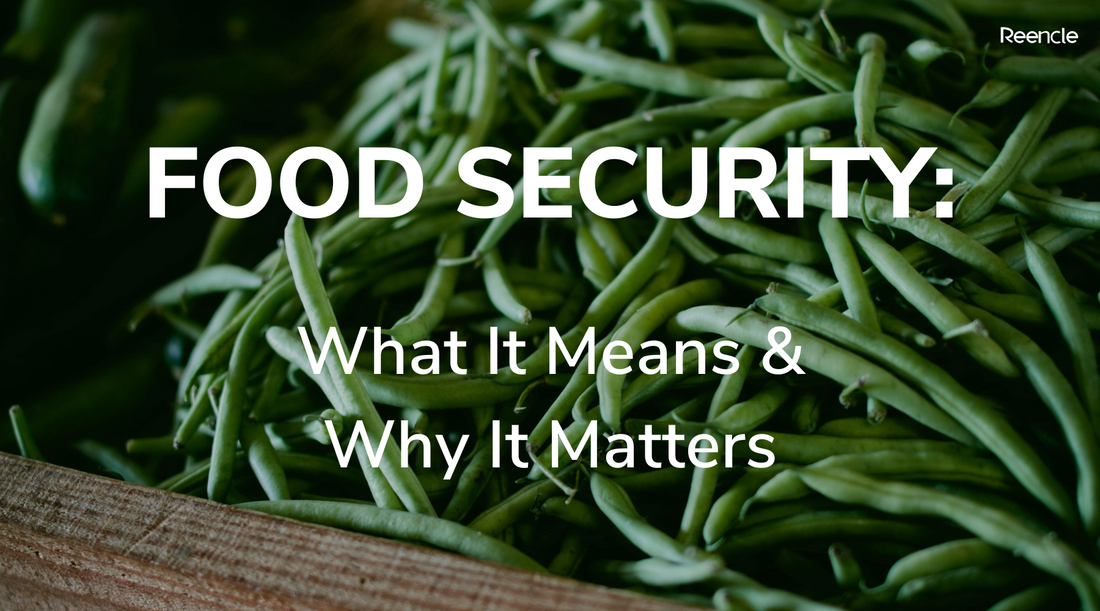Despite your first thought upon seeing the words “food security” for the first time, it does not involve guarding food. Food security, according to the UN’s Committee on World Food Security (CFS), means a situation in which “all people, at all times, have physical, social and economic access to sufficient, safe and nutritious food that meet their food preferences as well as dietary needs for a healthy and active life.”

Photo Credit: Yannis H
Even though having enough access to food is a basic (and arguably most important) human right, hundreds of millions of people suffer from starvation. Approximately 25,000 people succumb to hunger on a daily basis. Besides these alarming numbers, an additional 854 million people are also malnourished.
Unfortunately, COVID-19 damaged global food security, which resulted in an increased level of global hunger by around 118 million people in 2020 - the highest it’s been since 2006. Diseases like HIV/AIDS, malaria and tuberculosis combined still don’t cause as many fatalities as hunger does; this also affects those who live in developing countries the most.

Photo Credit: Walter Otto
The first Global Food Security Index (GFS) was published in 2012 by The Economist. The GFS is an instrument that measures food security in 113 countries. Every year, these rankings vary rather vastly. Food insecurity can be caused due to lacking fertile land, and a lack of capital for procuring sufficient food via imports. Besides these factors, unforeseen armed conflicts like the ongoing Ukraine-Russia war or the recent pandemic can also compromise food supplies in countries deemed “safer”.
Why Food Security Matters
The demand for food has steadily increased due to the growth of the population, income improvement and diet diversification. This calls for immediate change before global food security becomes compromised beyond reversibility. Otherwise, societies around the world will be met with catastrophic consequences.
One of the most glaring reasons food security matters is because of the increased hunger rates and famine, especially in developing countries, which is leading to a global food crisis. An estimated 5.7 million children are on the brink of starvation around the world, as they are expected to suffer most from the scarcity of food. Malnourishment leaves them vulnerable and weak, reducing their ability to fight common childhood diseases like diarrhoea and measles.
Compromised global food security also causes massive economic consequences. An increase in food prices is inevitable when produce is scarce. Besides the physical consequences of food insecurity, the psychological impact can be significant, too. People experiencing malnourishment can experience anxiety, stress and a decrease in productivity. This could in turn affect school or work performance - leading to job losses and reduced participation. When this happens, there’ll be a reduction in household income which will inevitably halter the economy thus creating a vicious cycle with increased unemployment and reduced economic power for governments to fight the food crisis.
This is more alarming when taking into account the political instability that often results from food scarcity. Not to mention internal and international countries as windows will be opened for wealthier countries to exploit poorer ones to gain access to the limited food supplies.

Photo Credit: Megan Thomas
Establishing the Future of Food Security
As previously mentioned, the current global food crisis has been made worse by the COVID-19 pandemic as well as the Ukraine-Russia conflict. International political commitment needs to be stepped up in order to avoid further mass impoverishment which would set us back in developmental progress painfully achieved over the last century.
We need to take crucial steps towards ensuring food security will be accessible around the world. This includes increasingly effective food supply distribution and a massive change in the current food system. Economic profit should no longer be the main goal, but making sure people no longer go hungry should be. This can be done by decreasing demand in wealthier countries while increasing supply in developing countries. Sustainable agricultural practices and reformed technology and education should also be done in terms of food waste reduction.

